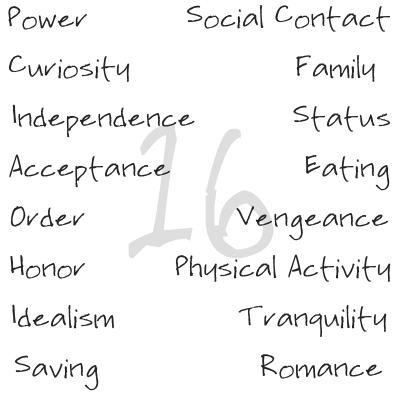Do you know what your needs are?
I’ll be you haven’t really consciously thought about this question recently. Of course Maslow has put them into a hierarchy for us, starting with the basics of food, shelter and ending with self-actualizing needs. But I will wager that other than our daily cave man like morning mantra “need coffee now” or monthly whine “really ought to hit the gym” most of us don’t pay attention to our needs.
What happens when a particular need goes unmet?
Ahhhh…hhhaaaa Unmet needs make themselves known. If you don’t notice your discomfort, your cranky mood, then perhaps someone close will be kind enough to point it out to you. They may ask “What’s wrong?” “You don’t seem to be yourself?” It may be as subtle as a lacklustre feeling seeping into everything, or something feeling “off”.
How can you really know what your needs are?
Here’s a scenario that you might know well. You think that you need a bigger, better car, house, job, city etc. and then you will be happy. You might recognize this syndrome in others when you listen to them complain.
Some of us might actually be able to become the kind of excellent observers of our behaviour that allows us to suss out our true needs which most likely aren’t the kind that are satisfied by a new house. For the rest of us looking at the Reiss Desire Profile can be enlightening. This assessment is a comprehensive, standardized, objectively validated instrument that assesses 16 basic psychological needs. Fourteen of these needs or desires are based on animal behaviour; for example, power, independence and curiosity can all be found when studying the animal world.
Who is responsible for my needs?
The simple (yet not so simple) answer is… you are. Here’s an example of the not so simple answer. One of the most challenging needs, if it applies to you, is the need for Acceptance. Before you think that we all have that particular need, the truth is …. we don’t. Some people honestly could care less what you think about them. Not in a mean way – it simply isn’t on their radar screen.
If you have a need like this and expect that because you give it to a particular person or even a job that there is an automatic quid pro quo return due to you, you may be sadly mistaken. In addition it is not necessary. You need to be responsible for getting your need met but if you realize that you can get it met in many ways you can design a solution that works. In the case of Acceptance, there are organizations that value this need – overtly acknowledging this by giving awards and having recognition dinners. Volunteering or working with individuals or organizations that help meet this need takes the pressure off expecting to find it in all the wrong places. Dog owners often boast that they receive unconditional love and acceptance from their pet. Suggesting that a pet can make a difference may seem at first like a trite response – I’m not certain that it is.
So what?
Pay attention to your moods, your feeling of well being. Our emotions and our bodies are great sources of information for us if we pay attention.
If you aren’t sure what needs aren’t being met or what needs are being stepped on or what you are ignoring, look at a needs based tool such as the Reiss Desire Profile.
Take action into your own hands and make a plan to get your needs met. This is not a one time affair. Meeting your needs once does not make them go away. They drive your behaviour whether you are paying attention or not.

